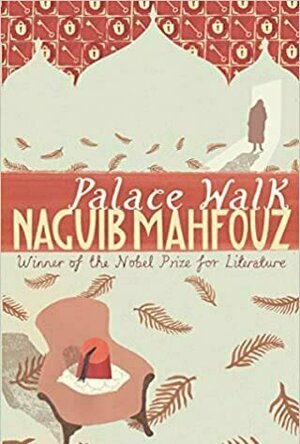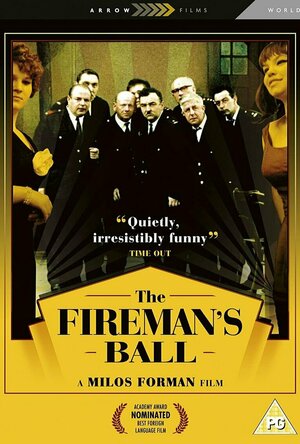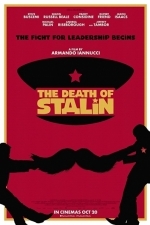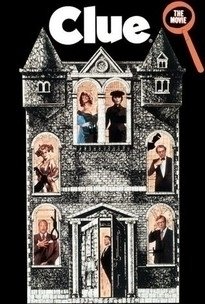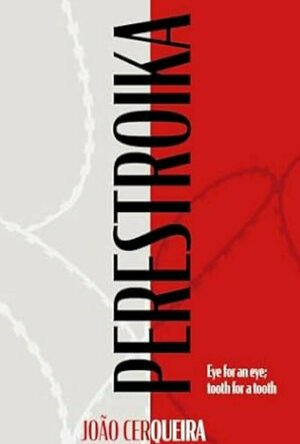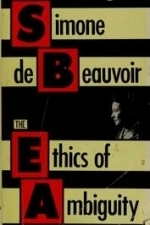Search
Search results
Entertainment Editor (1988 KP) created a video about AdVenture Communist in Apps
Nov 22, 2017
Andy K (10823 KP) created a video about Close Encounters of the Third Kind (1977) in Movies
Dec 24, 2018 (Updated Dec 24, 2018)
Andy K (10823 KP) created a video about Cool Hand Luke (1967) in Movies
Feb 17, 2018 (Updated Feb 17, 2018)
Marina Abramovic recommended Rasputin: The Biography in Books (curated)
Pete Buttigieg recommended Palace Walk in Books (curated)
Jane Campion recommended The Firemen's Ball (1967) in Movies (curated)
Kevin Phillipson (10072 KP) rated The Death Of Stalin (2017) in Movies
Dec 31, 2019
Steve buscemi (1 more)
Michael Palin
Just watched on Netflix rather good comedy rather dark political comedy about the communism and the death of Stalin with a cast of well known actors a who's who of British and American greats to watch the likes of Michael Palin and Steve buscemi sharing screen time just great. needed more Jason Isaacs still good film
Erika (17789 KP) rated Clue (1985) in Movies
Jun 19, 2018
The cast (1 more)
The multiple endings
Communism is just a red-herring.
This movie holds up after multiple viewings. The cast is fantastic, and the movie was completely zany. I always watch the film with all 3 endings, and I can't pick a favorite. This film definitely borrows a lot from 'And Then There Were None' by Agatha Christie, but it's definitely not a bad thing. Madeline Kahn was my favorite in this film, because all of her lines were perfectly delivered.
This is one movie that never needs to be remade.
This is one movie that never needs to be remade.
ClareR (6091 KP) rated Perestroika in Books
Mar 10, 2024
Perestroika by João Cerqueira is the story of a fictional country’s turn away from Communism.
We start off in Slavia in 1978 before any of the massive changes that will eventually take place, and we meet the inhabitants of the country: from the corrupt politicians to the men incarcerated in concentration camps. We see how people live on next to nothing and lies from the government that tell them all of their woes are because of the wicked Capitalist West.
The tables are turned on these corrupt Communists with the advent of Perestroika, and instead of Communists governing the country, an all-out crime boss finds himself in charge. But make no mistake: this was engineered by Ivan Fiorov (the crime boss) and his lackeys.
This is a story that is as relevant today as it always has been - especially with what is going on in the Ukraine at the moment. Some of the story arcs in this are horrific, and not just those that take place in the concentration camps. There’s child abuse, sexual coercion, drug abuse, neo-Nazis, violence. The people in this country experience a lot of change in a short period of time. But at the same time, everything stays the same.
Well worth a read.
We start off in Slavia in 1978 before any of the massive changes that will eventually take place, and we meet the inhabitants of the country: from the corrupt politicians to the men incarcerated in concentration camps. We see how people live on next to nothing and lies from the government that tell them all of their woes are because of the wicked Capitalist West.
The tables are turned on these corrupt Communists with the advent of Perestroika, and instead of Communists governing the country, an all-out crime boss finds himself in charge. But make no mistake: this was engineered by Ivan Fiorov (the crime boss) and his lackeys.
This is a story that is as relevant today as it always has been - especially with what is going on in the Ukraine at the moment. Some of the story arcs in this are horrific, and not just those that take place in the concentration camps. There’s child abuse, sexual coercion, drug abuse, neo-Nazis, violence. The people in this country experience a lot of change in a short period of time. But at the same time, everything stays the same.
Well worth a read.
Suswatibasu (1703 KP) rated The Ethics of Ambiguity in Books
Aug 30, 2017
Complex themes, slightly obvious
Simone De Beauvoir is one of the foremost feminist philiosophers there are. However, unlike in The Second Sex, The Ethics of Ambiguity explores the nature of freedom and basically deconstructs arguments made by pioneering philosophers Marx and Kant. She poses the question how can humans be both subject and object yet still be free? She says if humans are born free why are they also treated like objects to control? And there lies the ambiguity.
As free, we have the ability to take note of ourselves and choose what to do. As factic, we are constrained by physical limits, social barriers and the expectations and political power of others. She has quite a Hobbesian approach saying human beings are responsible for their own actions and therefore have to work at creating concrete ideals rather than following an abstract notion of freedom.
She also criticises approaches that require grasping for freedom at the expense of others - adding that inadvertently reduces gaining freedom down to another form of slavery ie. Communism, Capitalism and Democracies.
She concludes that the only way you can will yourself free is to will others free in the process.
While the sentiment is there, her writing style was very repetitive in this book, and at times a little tangential. Not her best work, but still very relevant for current times.
As free, we have the ability to take note of ourselves and choose what to do. As factic, we are constrained by physical limits, social barriers and the expectations and political power of others. She has quite a Hobbesian approach saying human beings are responsible for their own actions and therefore have to work at creating concrete ideals rather than following an abstract notion of freedom.
She also criticises approaches that require grasping for freedom at the expense of others - adding that inadvertently reduces gaining freedom down to another form of slavery ie. Communism, Capitalism and Democracies.
She concludes that the only way you can will yourself free is to will others free in the process.
While the sentiment is there, her writing style was very repetitive in this book, and at times a little tangential. Not her best work, but still very relevant for current times.

